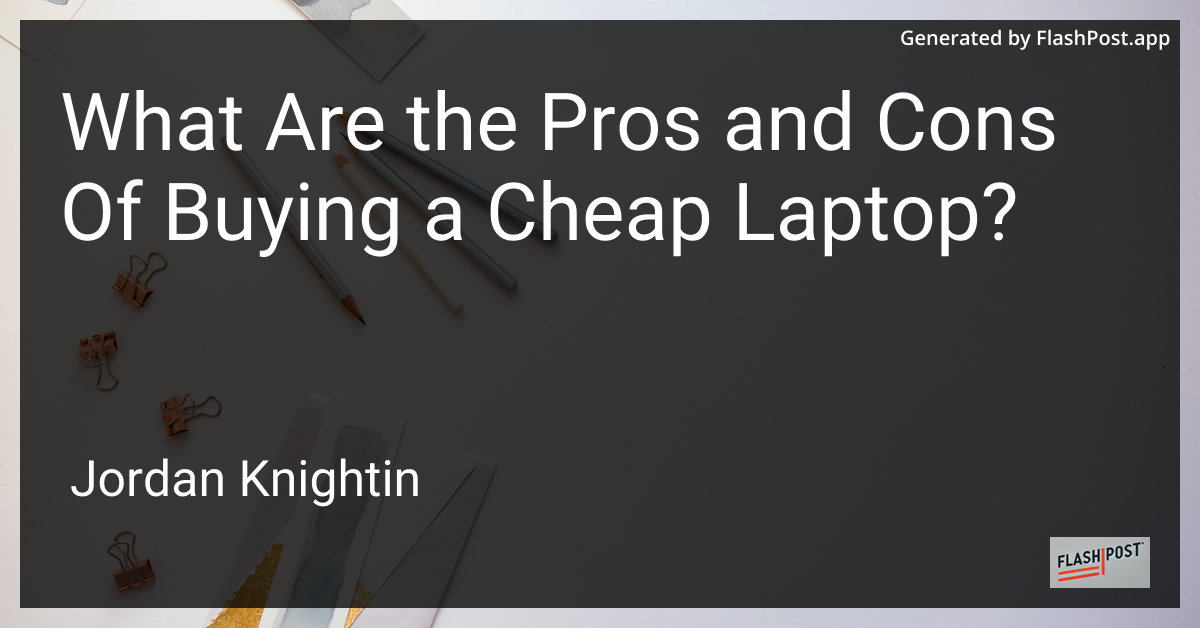

What Are the Pros and Cons Of Buying a Cheap Laptop?
When it comes to purchasing a laptop, price is often a critical factor for many buyers. Cheap laptops can be quite appealing, especially for budget-conscious shoppers. But are they truly worth it? In this article, we’ll explore the pros and cons of buying a cheap laptop to help you make a more informed decision.
Pros of Buying a Cheap Laptop
1. Affordability
The most obvious benefit of purchasing a cheap laptop is affordability. If you’re on a tight budget, a less expensive laptop allows you to stay within your financial limits while still getting a functional device.
2. Portability
Many budget laptops are designed to be lightweight and compact, making them highly portable. This makes them ideal for students or professionals who need a laptop they can easily carry around.
3. Adequate for Basic Tasks
For most users, a cheap laptop is sufficient for day-to-day tasks such as browsing the internet, checking emails, and creating documents. If your needs are minimal, a budget-friendly laptop may serve you well.
4. Functional for Educational Purposes
Cheap laptops are excellent options for students, especially when paired with additional savings. Learn how to secure student discounts for laptops to get more value for your money.
Cons of Buying a Cheap Laptop
1. Limited Performance
When you opt for a budget laptop, you often sacrifice performance. Cheap laptops tend to have weaker processors, less RAM, and minimal storage, which may not be sufficient for demanding tasks such as gaming or video editing. If performance is crucial for your needs, you might want to explore a gaming laptop buying guide.
2. Lower Build Quality
Cheap laptops are frequently made with less durable materials. This can lead to quicker wear and tear or even malfunction over time, resulting in additional costs for repairs or replacements.
3. Reduced Battery Life
Lower-end laptops often have less efficient batteries, meaning you will need to charge them more frequently. This can be inconvenient if you’re using the laptop on the go.
4. Limited Upgrade Options
Budget laptops typically offer limited options for upgrading components like RAM and storage. This means you might need to replace the entire laptop sooner than anticipated, especially as your needs evolve.
5. Subpar Display and Audio
The display resolution and audio quality on cheaper laptops are often lacking compared to their more expensive counterparts. If you rely on your laptop for media consumption, this could be a disappointing compromise.
Conclusion
While cheap laptops come with several advantages, including affordability and portability, they also have notable downsides like limited performance and lower build quality. Your decision should depend on your specific needs and usage. Consider what tasks you’ll perform most frequently on your laptop and weigh the pros and cons appropriately. Also, don’t forget to explore additional cost-saving options, such as cheap laptop docking options to enhance functionality while keeping within your budget.
Carefully assessing these factors will ensure you choose a laptop that aligns well with both your expectations and your budget.
